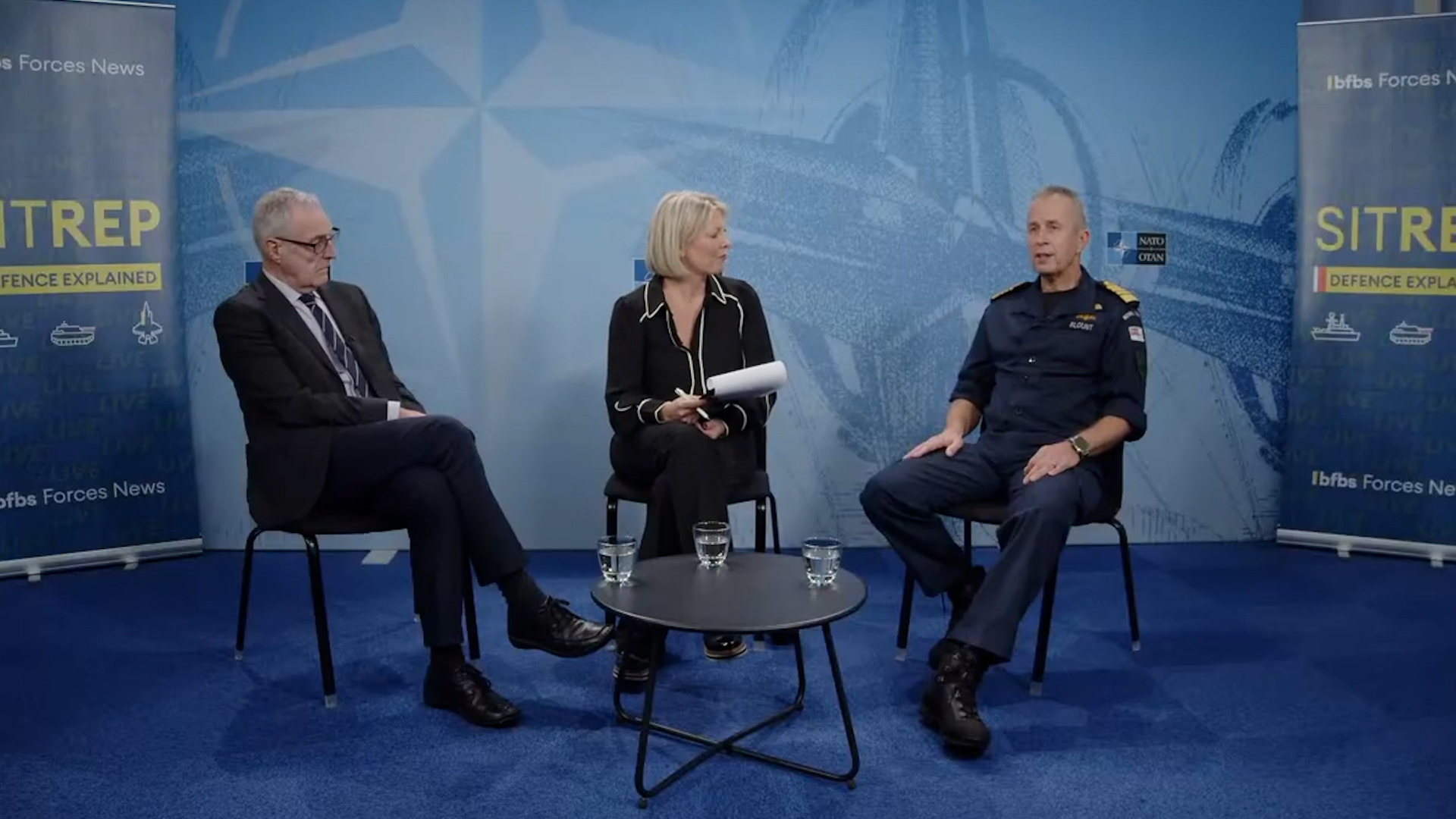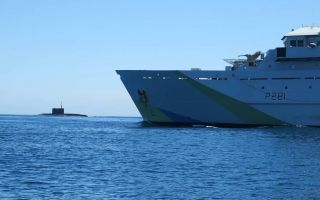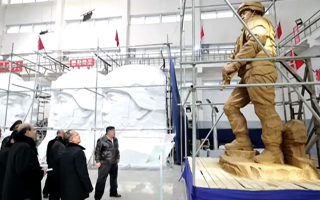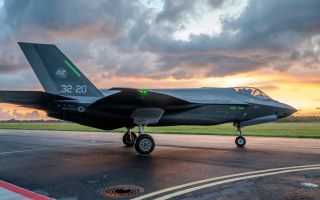
Five things we learned from Nato's Dsaceur on the first-ever Sitrep LIVE

In a special episode of BFBS Forces News' Sitrep podcast, the most senior UK officer in Nato discussed everything, from the alliance's future, tech developments, the Ukraine war and the threat posed by Russia.
Admiral Sir Keith Blount, Nato's Deputy Supreme Allied Commander Europe (Dsaceur), told Claire Sadler and defence expert Professor Michael Clarke "the world has changed".
He added that society needs to "catch up" with the security picture, as well as outlining a number of areas that the alliance needs to focus on.
Below BFBS Forces News explores the key points from the discussion.
'Everything is on the table'
Adm Sir Keith said he thinks the Ukraine conflict has made his job as Dsaceur easier in some ways as it has allowed him to ask allies what capabilities they would provide Nato with.
"The question I put to allies to the nations, the capitals, is if, God forbid, we found ourselves in conflict where the entire alliance was activated, which capabilities would you not give to the alliance?" he said.
"And if you frame the question in that way, then nations are pretty much all in.
"In that sense, Ukraine has allowed me to ask that question with an evidential underpinning that means that we are starting to see pretty much everything that nations have on the table."
He said that has been "helpful" and has made the "baselining of the capability that we have… easier to achieve".
The Nato chief did concede, however, that "the hardest bit now" is to get after "where we don't enjoy all of the advantages that we would wish".
"That's the bit now that needs to become a reality," he said.
Even allies keep secrets
Space is a domain that sees even Nato allies keep secrets from each other, Adm Sir Keith explained.
Professor Clarke was asked if it was hard for allies to work together in the domain, to which he said it was.
He also said a lot of the tech is available to the highest bidder, and "some of the highest bidders will be non-state actors".
Adm Sir Keith said he wanted to reinforce that Nato nations "share as much about themselves and their military capabilities as they as possible should".
"Which is a lot," he said. "So we know a lot about each other within the alliance."
But, he explained, "there are certain bits of capability that are quite siloed for various reasons".
"Nuclear capabilities would be a good example of that," he said. "So would certain aspects of cyber and now space.
"But the alliance has adapted to understand how we can leverage sovereign capabilities within an alliance wrapper in a way that does not necessarily require a nation to tell the other 31 what it's doing.
"I can't go into that in huge detail, but that's just one of the areas that the alliance has adapted to be able to bring capabilities like cyber and space closer to the more conventional capabilities."
Do we leap or step gently with new tech?
Another topic Adm Sir Keith covered was emerging technology available to Nato.
He said "the opportunities that they present through artificial intelligence, swarming technologies, remote on autonomous systems" are out there.
But the Nato chief said getting them into service is a challenge.
"At some point you need to make really big and courageous capability decisions to say, right, we're not going to build another class of frigate or we're not going to build another class of crewed aircraft," he said.
"We are going to step away and we're going to leap in and, of course, one of the great debates is whether you leap or whether you step gently because if you do get it wrong, you're left very, very exposed.
"It's an interesting challenge for the alliance to make sure that we go at the right pace so that we don't fall behind the technology curve.
"But equally, we don't end up almost hedging bets on capabilities that then we find are not quite as solid as we need them to be."
Is the Baltic Sea a Nato pond?
Since Finland and Sweden joined Nato, there has been a wide discussion about the Baltic Sea.
Prof Clarke said he knew the two countries joining the alliance worried Russia, but asked if that makes the Baltic a "Nato lake" and if Moscow worried about the Baltics.
Adm Sir Keith said he is sure this will worry the Russians, but they mustn't be painted as "10 feet tall".
"When you look at the military advantage that the alliance enjoys in the Baltic, if you were looking at that through a Russian lens, you really, really would not like to think of it," he said.
"Of course, you draw attention to Sweden and Finland, but in 2004, the Baltic nations came in themselves Latvia, Lithuania, Estonia – which has ringfenced [Russia]."
There is also the High North, with Prof Clarke highlighting how much investment Russia is putting into the Arctic.
"That's got to be a concern… as global warming opens up the Northwest Passage," he said.
"It's sod's law that it's opening up on the Russian side."
Admiral Sir Keith acknowledged the issue and said Nato has to "use allies that are members of the Arctic Council in other forums just to keep tabs on everything that's going on".
"When we talk about the High North and the Northern Sea Route, that because of climate change, people are sort of imagining people [sitting] there on the beach with a strawberry daiquiri, enjoying the sun," he said.
"This is still quite pioneering maritime activity, to get from one end of that route to the other.
"But for sure this is a burgeoning challenge for the alliance."
You can listen to Sitrep wherever you get your podcasts, including on the Forces News YouTube channel.








